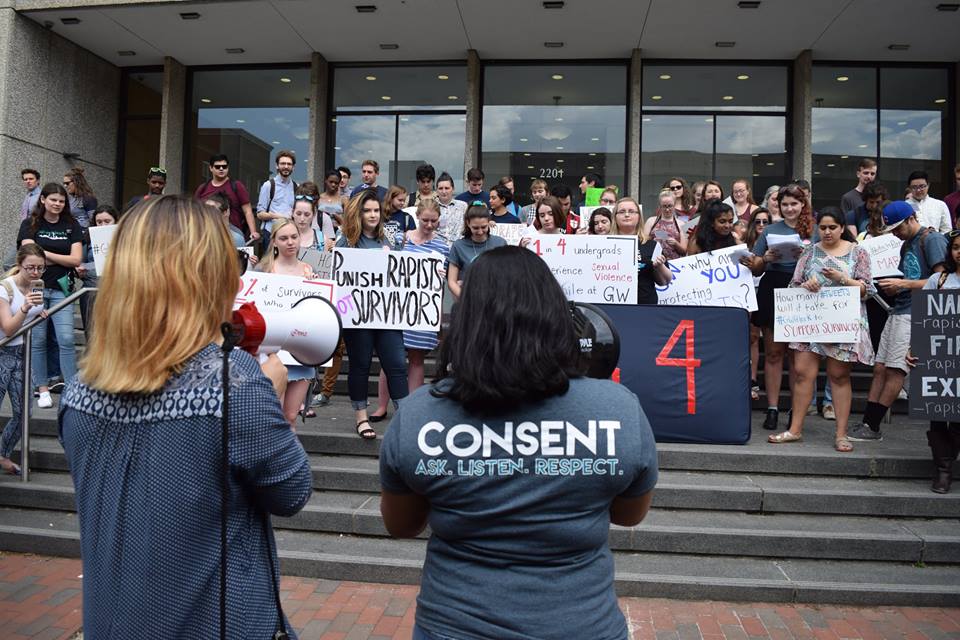In the past five years, sexual assault on college campuses has become increasingly important in the national discourse on women’s rights. While these issues have existed for decades, there recently have been many high profile lawsuits against universities on their mishandling of sexual assault and harassment cases, including schools such as UC Berkeley, University of North Carolina-Chapel Hill and Yale, to name a few. Overwhelmingly, it has become clear that colleges are not equipped- or downright noncompliant- to ensure that appropriate disciplinary actions are taken against perpetrators of sexual assault. Following these cases there have been significant legislative gains at both the state and the national level, such as California’s “Yes Means Yes” policy and the 2013 Campus SaVE amendment to the Clery act.
But what if a student wants to pursue alternative forms of justice? Perhaps the student in question doesn’t want to draw attention to the already traumatic event that they experienced, or maybe they don’t trust their institution to properly handle their case. In these instances, a survivor may choose to look to other students for healing. For this reason, many college campuses have student-run support networks for survivors. These types of groups, which are usually run completely outside of administrative justice, operate based on the notion that each person’s experience of sexual harm is different, and thus there should be equally as many ways of healing and moving on from harm. One such campus group is Students Against Sexual Assault (SASA) at the George Washington University. I spoke with Alexa Grasfield (she/her/hers), the co-president of SASA, a rising senior and a political science and women’s studies double major.
LT: What is SASA?
AG: GW Students Against Sexual Assault (SASA) is a peer-led organization whose purpose is to provide the George Washington University community with educational and supportive services related to sexual assault, dating and domestic violence, sexual harassment, and stalking. We strive to eliminate the culture of sexual violence on campus, and do so by advocating for policy changes, actively educating the campus community, and creating safe spaces on campus for all those who have been affected by sexual violence. We have a peer education team of over 20 students who lead workshops about consent and bystander intervention to other student organizations, as well as a survivor support group.
LT: What sort of restorative processes does SASA provide to students who have been harmed?
AG: As students and advocates we realize that every survivor is unique and every survivor deserves justice through whatever avenue is right for them. Because of this, we always try to advocate for survivors through whatever means they want. This can be working with survivors who want to report through the university or through university police. It could be giving resources, helping a survivor connect with health services or counseling or join our survivor support group, or it could be fighting back and organizing against a system and administrators that failed a survivor, which occurred this past semester with the #GWProtectsRapists campaign. We recognize that all survivors’ experiences are different and what is healing for one survivor may not be healing for another so we want to make sure we can provide a safe and caring community.
LT: Why might a student come to SASA as opposed to pursuing disciplinary action?
AG: A student may come to SASA instead of pursuing any sort of disciplinary action because reporting is not right for every survivor and we can provide other avenues of support. Whether they want other resources or to join our survivor support group SASA can provide support different than any disciplinary action.
LT: Why are groups like SASA important to have on college campuses?
AG: Groups like SASA are imperative to have on college campuses because as students we can see the culture on campus more than administrators can. As advocates we can see the flaws within our university reporting system and we can work to hold our administrators accountable and ensure that they are doing all they can to work for the best interests of survivors. As students and educators we can provide peer education that is able to connect more with students, as peer education has proven to be more effective especially when it comes to topics such as consent and alcohol which [are] difficult for administrators to talk about, but imperative for students to discuss and understand. As fellow survivors and advocates, we can help to provide support and healing that the university and health services can’t always provide. And as a community that is full of activists with a desire to create and lobby for better policies, we can ensure that our university is listening to the voices and needs of survivors, and also the larger DC community.
LT: What should a student know if they want to seek out/join groups like SASA?
AG: To anyone who wants to join groups like SASA I can only say do it, it will be the best decision of your life! You will be joining a community of survivors and activists who are the most supporting and caring people you will ever meet. Sexual violence prevention work can be extremely hard and emotionally draining, but groups like SASA are filled with supportive, caring people who will always be there to listen and help.

